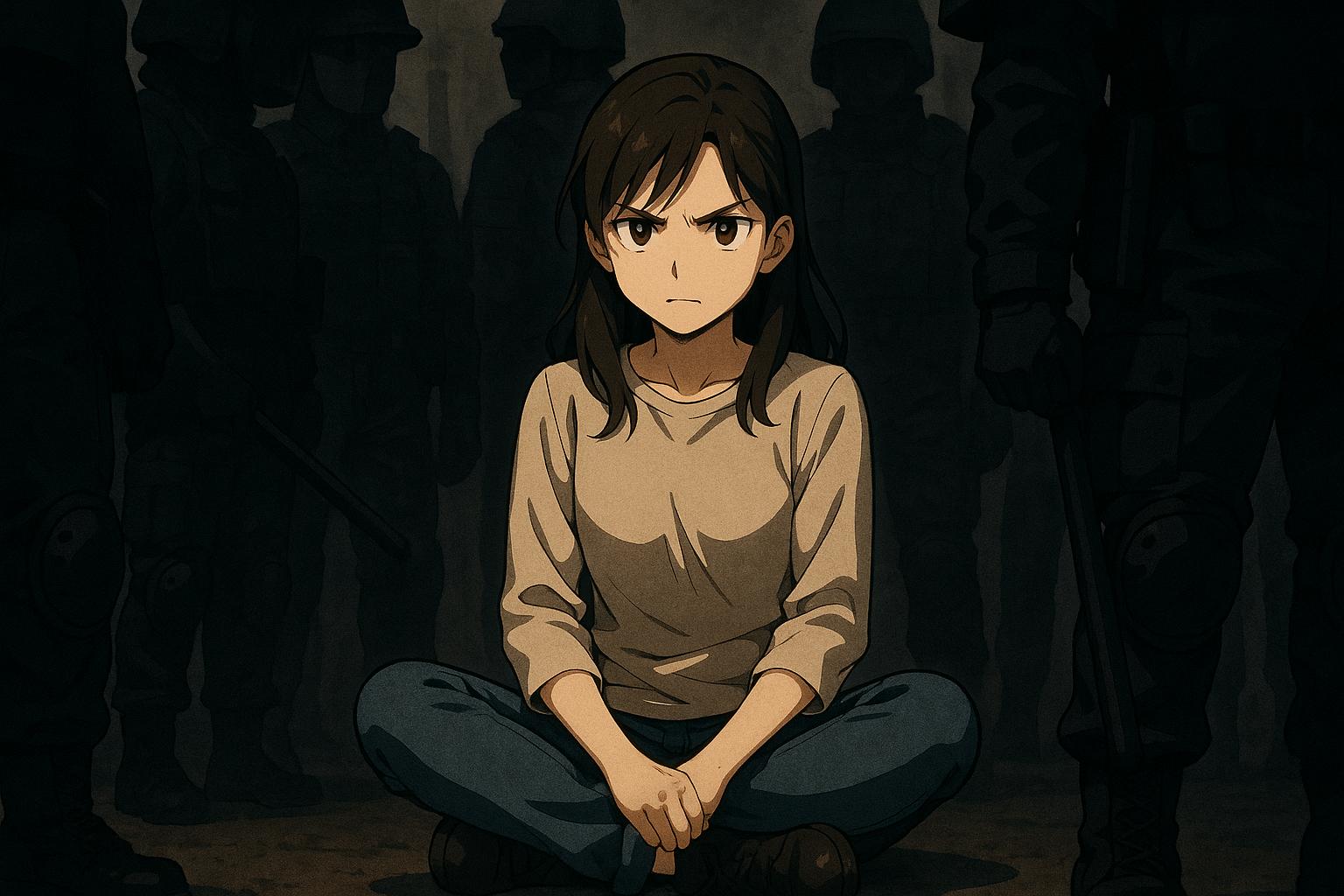Shocking footage has resurfaced, revealing police brutality against women detained in Saudi Arabia's so-called care homes, specifically the Social Education Home for Girls in Khamis Mushait, Asir Province. Initially recorded in August 2022, the video depicts women staging a peaceful sit-in protest against their dire living conditions, only to be met with violent repression from security and police officers. In the harrowing scenes, officers are shown dragging women by their hair and assaulting those already prone on the ground, an act of brutality that has ignited widespread outrage among human rights activists.
Dr Maryam Aldossari, a Saudi academic now based at Royal Holloway, University of London, highlighted the grim realities faced by women in these facilities, which function as de facto prisons. Many remain incarcerated until a male guardian grants permission for their release. Dr Aldossari's critical perspective reflects a broader discontent regarding women's rights in Saudi Arabia, exacerbated by the systemic misogyny evident both in law and practice. She remarked, “They completely cut them off. There are cameras everywhere. If you misbehave, you must go to these small individual rooms; you are separated.” Such conditions can have dire psychological impacts, with some women reportedly contemplating suicide in despair.
The local authorities did declare an investigation into the incident following the emergence of the video, yet ALQST, a prominent human rights organisation, has condemned this as a mere facade, suggesting that any credibility of the inquiry is undermined by the persistent pattern of abuse in these facilities. The organisation has documented evidence of systemic violence, noting, "violence at the hands of the authorities is a hallmark of the Saudi prison system," drawing alarming parallels between care homes and conventional prisons where young women and girls face physical assaults and even sexual harassment.
Despite government assertions that these facilities do not operate as detention centres and that women are free to leave at any time, many former detainees tell a different story. They recount instances of being detained for ostensibly defying familial expectations or being subjected to familial abuse, a reality underscored by Dr Aldossari’s testimony regarding the notion of 'disobedience.' She stated, "A woman might be legally allowed to apply for her own passport... but her male guardian can still prevent her from travelling by filing a case of disobedience." This lack of a transparent legal framework effectively traps women in a cycle of oppression.
The history of these care homes is troubling; they have existed since the 1960s, presented initially as rehabilitative spaces for women accused of various offences. However, reports suggest that they have devolved into instruments of state control over women’s lives. Female residents often face inhumane treatment, including solitary confinement and physical punishment, as documented in various testimonials. These homes reportedly hold women as young as seven, perpetuating a culture of fear and control, whereby acts deemed inappropriate by family members or society can lead to severe consequences.
Testimonies highlighting the abuse within these institutions paint a harrowing picture. One former inmate shared her ordeal of being physically punished for minor infractions, while another revealed the ghastly practice of being made to ingest vomit after being served spoiled food. A pattern of suicides has also emerged among women who have been released, with some evidently driven to despair by the trauma endured within these facilities.
With the ongoing scrutiny from human rights organisations and activists, there is a growing call for reform. Campaigners like Sarah Al-Yahia argue passionately against these homes, revealing personal traumas such as her father’s threats to send her to a care home for resisting abuse. The existing power dynamics in Saudi society place vulnerable women in precarious positions, with family members often able to dictate their fates, in some cases perpetuating the very cycles of abuse they seek to escape.
As the international community continues to respond to these distressing revelations, the situation for women in Saudi Arabia remains precarious, with little indication that substantive change is imminent. Dr Aldossari's words resonate deeply within this context: “It is such a dark time in Saudi Arabia. This is becoming a police state. People are scared.” The struggle for women's rights in the kingdom is far from over, and unless meaningful interventions occur soon, the plight of these women will remain an urgent scar on Saudi Arabia's conscience.
Reference Map:
- Paragraph 1 – [1], [2]
- Paragraph 2 – [1], [3]
- Paragraph 3 – [2], [4], [5]
- Paragraph 4 – [2], [3]
- Paragraph 5 – [1], [6]
- Paragraph 6 – [2], [4]
- Paragraph 7 – [1], [5]
- Paragraph 8 – [2], [3], [4]
- Paragraph 9 – [5], [6]
- Paragraph 10 – [1], [2]
Source: Noah Wire Services
